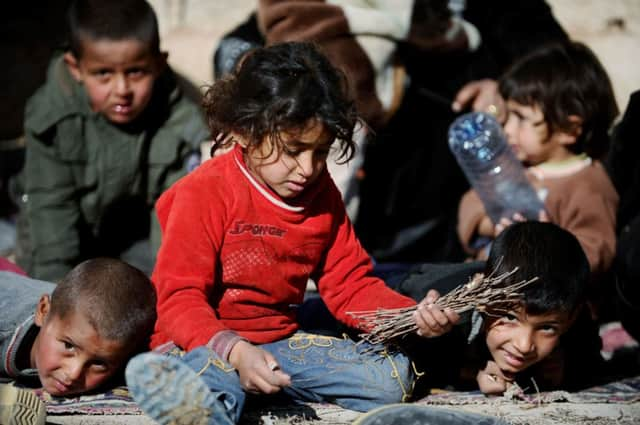Leaders: Can we stand by after horror in Syria?


And yet this phrase is now being used by international war crimes experts to describe organised mass murder by the Assad regime in Syria.
Photographs smuggled out by a Syrian military policeman – who has since defected to the rebels – chronicle the deaths of around 11,000 people, many of whom had been tortured before they died.
Advertisement
Hide AdAdvertisement
Hide AdSir Desmond de Silva, the former chief prosecutor of the special court for Sierra Leone, has described these pictures as reminiscent of Nazi death camps Auschwitz and Belsen. Again, not a comparison to be made without a great deal of sober reflection.
That these specialists now feel able to use these terms to describe the Syrian conflict should give the world pause for thought. It suggests everyone with a stake in the Syrian conflict – particularly the combatants’ proxy supporters elsewhere in the Middle East and beyond – need to take a step back and reassess their positions on a conflict that has been going on for almost three years.
We already knew there was wholesale slaughter in Syria. In July last year, the United Nations was talking about a death toll of 100,000. But if 11,000 bodies showing signs of torture turn up in just one area, it suggests that the UN figure may be a massive underestimation.
What we have now is a greater understanding of the nature of many of these deaths. Not all were casualties of fighting, or collateral damage in the indiscriminate shelling of civilian neighbourhoods. We are now learning that many were the result of systematic imprisonment and murder on an almost industrial scale.
President Bashar al-Assad tested the West’s resolve last year with the use of chemical weapons against a rebel neighbourhood. But possible military repercussions for the Syrian government stalled when MPs in the House of Commons refused to back limited force by the British military. Partly as a result, US president Barak Obama also backed away from a strike against Assad’s army. The way was left open for president Vladimir Putin of Russia to broker a deal involving the dismantling of the regime’s chemical weapons arsenal, with Assad remaining in power, for now at any rate. In the light of this new evidence, is this diplomatic stalemate tenable?
Yesterday’s revelations were timed to coincide with peace talks due to begin today in Switzerland. Some interested parties are clearly concerned a “peace settlement” might simply entrench the Assad regime and allow its barbarism to continue unchecked. After Iraq and Afghanistan, the West is rightly cautious about military adventures that might involve “boots on the ground”. But with the new light now shone on this conflict, can we really stand idly by? Can we really be quiescent witnesses to a new holocaust?
Cashing in on voters’ finances
PERHAPS it should come as no surprise that in the throes of the worst period of austerity for generations, family finances are the defining political issue of the age.
And yet the findings of the annual ScotCen Social Research poll on attitudes to independence are still extraordinarily stark. It seems that 52 per cent of Scots would vote Yes if they thought they would be £500 a year better off – an independence windfall of £1.37 a day. But ask how they would vote if it could be demonstrated they would be £500 the poorer, and a Yes vote slumps to a doleful 15 per cent. There have been many demands for the independence debate to provide definitive answers on a range of issues including currency, European Union membership and the future of Trident. But in the light of such poll findings, one wonders if any issue can possibly come anywhere close to being as important to the referendum voter as cold, hard cash.
Advertisement
Hide AdAdvertisement
Hide AdThis view is echoed by Professor John Curtice, a ScotCen consultant, who says the referendum campaign is “at risk of short-changing the people of Scotland”.
He continues: “Many of the issues that preoccupy those campaigning for and against independence are apparently of peripheral interest to voters. Voters want to hear about the economic and financial consequences of the choice that they make, and it is on the outcome of that debate that the result of the referendum is likely to turn.”
This could be seen as being an opportunity for the Yes campaign – all it has to do to be sure of victory is convince voters that Scotland can be an economic powerhouse that will generate prosperity for all. That, however, may be easier said than done.